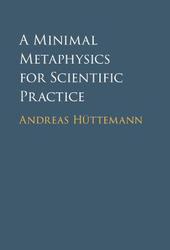
|
A Minimal Metaphysics for Scientific Practice
Hardback
Main Details
Description
What are the metaphysical commitments which best 'make sense' of our scientific practice (rather than our scientific theories)? In this book, Andreas Huttemann provides a minimal metaphysics for scientific practice, i.e. a metaphysics that refrains from postulating any structure that is explanatorily irrelevant. Huttemann closely analyses paradigmatic aspects of scientific practice, such as prediction, explanation and manipulation, to consider the questions whether and (if so) what metaphysical presuppositions best account for these practices. He looks at the role which scientific generalisation (laws of nature) play in predicting, testing, and explaining the behaviour of systems. He also develops a theory of causation in terms of quasi-inertial processes and interfering factors, and he proposes an account of reductive practices that makes minimal metaphysical assumptions. His book will be valuable for scholars and advanced students working in both philosophy of science and metaphysics.
Author Biography
Andreas Huttemann is Professor of Theoretical Philosophy at the University of Cologne. He is the author of What's Wrong with Microphysicalism? (2004) and Ursachen (2013), and has published many book chapters and journal articles on metaphysics, philosophy of science and early modern philosophy.
Reviews'A Minimal Metaphysics for Scientific Practice constitutes a highly original contribution to the burgeoning field of the metaphysics of science. Clear, well-argued and ambitious in scope, it will be required reading for those seeking cutting-edge work on such issues as laws, causation, reductionism and fundamentality.' Travis Dumsday, Concordia University of Edmonton
|